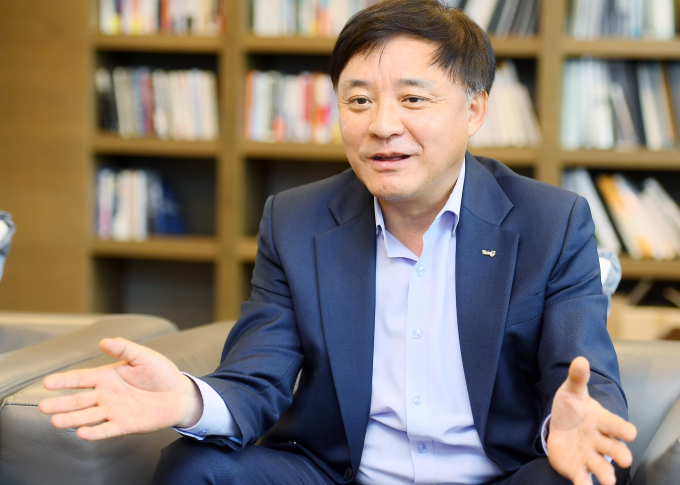Pension funds
Korean TeachersŌĆÖ Credit poised for best return since 2010
Dec 14, 2020 (Gmt+09:00)
2
Min read
Most Read
Samsung shifts to emergency mode with 6-day work week for executives


CJ CheilJedang to sell feed, livestock unit for $1.4 bn


Samsung Electronics' key M&A man returns; big deals in the offing


Affinity to buy SK Rent-a-Car at $572 mn, more deals expected


Keppel REIT to sell Seoul-based prime office T Tower



The Korean TeachersŌĆÖ Credit Union (KTCU) is on course to post its strongest investment return in a decade of around 9%, driven by double-digit returns from equities markets, according to the retirement fund on Dec. 14.
As of the end of November, the 34-trillion-won ($31 billion) savings fund reported an 8.4% return on investment, more than double its earlier 4% target for this year and compared to last yearŌĆÖs 6.9%.
For the whole year of 2020, its return is expected to rise close to its 2010 level of 9.0%, reflecting the extended bull runs in both domestic and overseas stock markets, a KTCU spokesman told The Korea Economic Daily. But he added that year-end numbers are subject to accounting variables and foreign exchange rates.
The estimated 9% return will likely translate into 2.5 trillion won ($2.3 billion) in proceeds, the Maeil Business Newspaper reported on Monday. KTCU's assets under management are projected to grow by 5.3 trillion this year.
By asset class, domestic equities generated a 25.7% return as of the end of last month, with returns from both domestic and overseas alternatives averaging 6.6%.
With equities making up 20% of its portfolio, KTCU has increased exposure to the semiconductor and rechargeable battery sectors, as well as to companies seen as benefiting from social distancing trends.
From alternatives, it realized a 67% return from the exit of Ellie Mae, a US cloud-based platform provider, in September.
But the steep appreciation of the won against the dollar eroded its global investment returns, limiting returns from overseas alternatives to the 4-5% range, the spokesman said.
Overall, KTCU maintained a cautious stance on alternative investments, focusing on private debt and structured products with guaranteed returns.
KTCU will further boost exposure to equities markets and M&A financing deals as the prolonged economic slowdown is expected to force companies to offload marginal businesses and non-core assets, its Chief Investment Officer Kim Ho Hyun told The Korea Economic Daily in an October interview.
Thanks to the bullish stock markets, other major pension funds in Korea, including the TeachersŌĆÖ Pension and the Public Officials Benefit Association, also look set to beat their 2020 target returns, which ranged between 2.5% and 4.2% by the yearŌĆÖs end.
┬Ā
Meanwhile, the National Pension Service, the worldŌĆÖs No. 3 pension scheme, posted a 4.17% return this year as of the end of September.
Yeonhee Kim edited this article.
More to Read
-

-

-
 Private equityPrivate markets open to more high-net-worth individuals: Hamilton Lane
Private equityPrivate markets open to more high-net-worth individuals: Hamilton LaneApr 16, 2024 (Gmt+09:00)
-
 InfrastructureInfrastructure secondaries continue to rise amid inflation: Stafford
InfrastructureInfrastructure secondaries continue to rise amid inflation: StaffordApr 09, 2024 (Gmt+09:00)
-
 Private equityCarlyleŌĆÖs Rubenstein sees commercial real estate undervalued
Private equityCarlyleŌĆÖs Rubenstein sees commercial real estate undervaluedApr 08, 2024 (Gmt+09:00)
Comment 0
LOG IN


